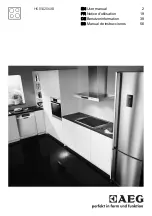
Hearthstone Quality Home Heating Products, Inc.
Heritage Model 8090 Pellet Stove
Page 50 of 53
2. FUEL STANDARDS
The importance of consistent fuel and quality controls became apparent in the early years of residential pellet
appliances. Fuel characteristics are crucial factors in appliance performance and maintenance. The Fiber Fuels
Institute (FFI) and the Association of Pellet Fuel Industries (APFI) adopted national standards recognizing
acceptable criteria for these characteristics in 1991. FFI and APFI have now merged into one association, the
Pellet Fuel Institute (PFI). Voluntary fuel quality certification is the responsibility of the pellet manufacturer. Not
all pellet fuels carry the voluntary PFI guaranteed analysis, even though some packaging may be marked
“Premium.” End users may have to rely on experienced retailers in choosing appropriate fuel.
2.1 CRITERIA
PFI standards establish two grades of fuel, Premium and Standard. The following chart indicates that
the only difference between the two grades is inorganic ash content. Table 1 outlines the fuel grade
standards. However, each of the six criteria is important, because understanding them clarifies
appliance performance and maintenance.
Understanding the rationale for each of the criteria begins the process of understanding appliance
performance and maintenance.
2.1.1 DENSITY
The density, or weight per cubic foot, reflects the amount of solid material packed into the pellet and
therefore has a relationship to the heat content of the fuel. In the same number of auger turns,
higher density fuel delivers more Btu content than a low density fuel. Additionally, lower density fuel
burns faster and may affect low burn settings. Wide variations can require appliance adjustment,
particularly in the case of excessively low density fuel which could cause the fire to go out. Density
is also important as a gauge that adequate pressure and bonding have produced hard pellets that
can withstand shipping and handling.
2.1.2 DIMENSIONS
Pellet diameter is another factor that affects stove performance. The 1/4-5/16 inch standard reflects
the common die size for residential fuel in the Americas. Industrial pellets can range as large as 1/2"
in diameter and are unacceptable in residential appliances. The most common size for residential
appliances is 1/4"; in fact, some appliance manufacturers report problems with some varieties of
5/16" pellets. Apparently, unusually hard pellets of this size may not cut easily when caught




































